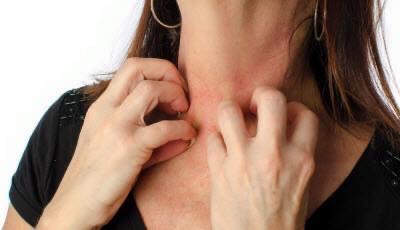Histamine intolerance and mast cell disorders.
Histamine intolerance can be a factor that stops people from recovering their health, until it is addressed.
Histamines are chemicals produced during allergic responses. When an allergen triggers the immune system, mast cells (a type of white blood cells) release histamines as part of the inflammatory immune reaction. As well as being produced during an immune response, histamines can also be absorbed from histamine-containing foods and are produced by bacteria in the gut.
The symptoms of histamine intolerance are the same as other allergy problems: rashes, urticaria / hives, runny nose, swelling in the throat, and itching. An overload of histamine can build up and cause many more problems, including insomnia, hot flushes, migraines, digestive upsets, nausea, and low blood pressure or high blood pressure with decreased heart rate which can cause tachycardia. There can be varied symptoms, but allergic type reactions are usually part of the pattern.
Histamine intolerance symptoms overlap with many other health conditions like adrenal fatigue, bladder issues like interstitial cystitis, EDS (a joint hyper-mobility syndrome), IBS and inflammatory gut conditions (especially celiac and gluten sensitivity), POTS and autoimmune thyroid diseases.
Naturopaths do not believe that histamine intolerance or mast cells issues cause these conditions – we believe that there is likely to be one underlying cause that is harming your body and creating all of your symptoms at the same time. The symptoms your body creates are a way to keep you functioning and alive even though you have something inside of you causing damage. Common underlying causes are toxins like mercury creating gut dysbiosis, or infections like the virus EBV (the most common cause of post-viral fatigue) or bacteria like Borrelia (which with co-infections causes chronic Lyme disease) causing immune system irregularities. There is often a combination of these issues at play.
It is hard to get a clear diagnosis when there are multiple factors. The important thing to recognise is that all these conditions can get better by strengthening the body and clearing the underlying factors that are causing the damage. Our recovery programme is designed to do that in a gentle but effective way.
It is thought that only 1% of us are likely to be histamine intolerant, but it seems likely to be something that is effecting an increasing amount of people, perhaps because of our poor quality diets, stressful lifestyles and over- use of medicines which make gut dysbiosis more common.
Copyright Sonia O’Donnell for NTA 2018


Recent Comments